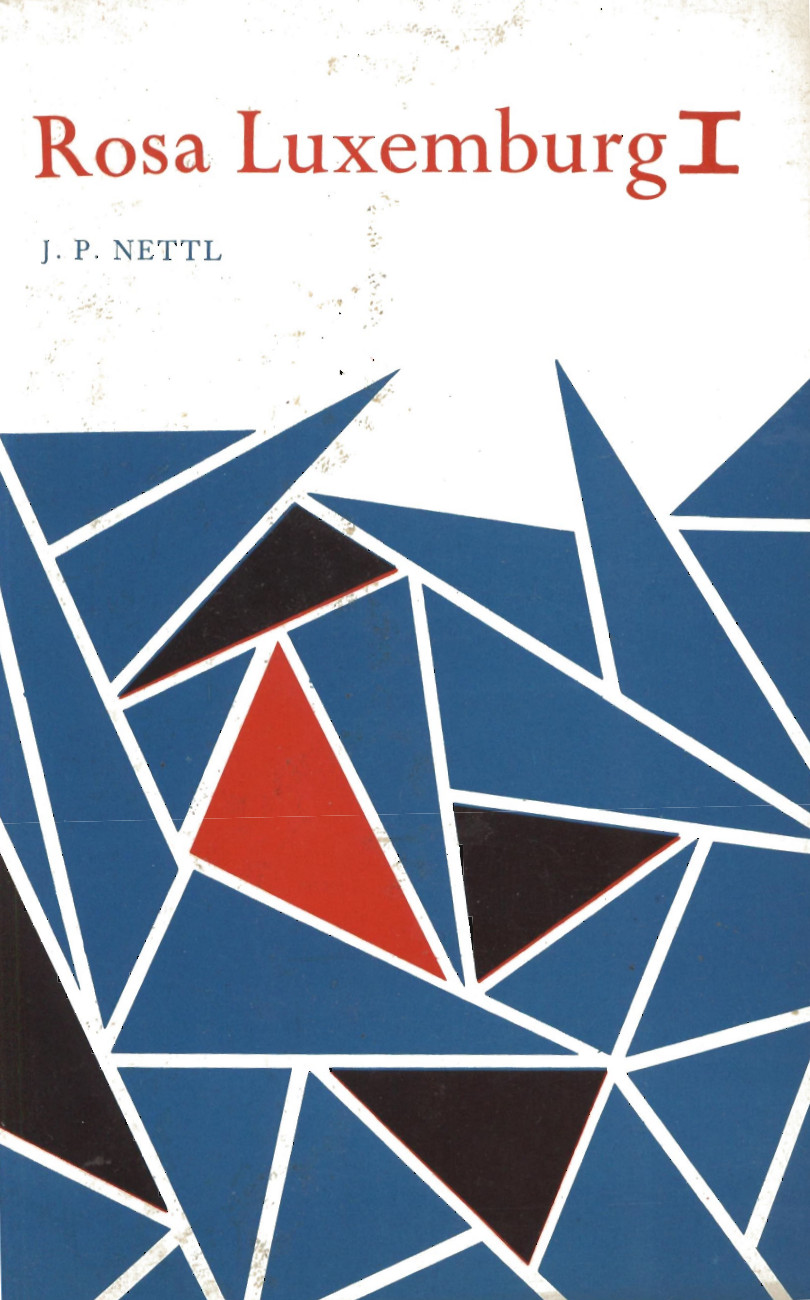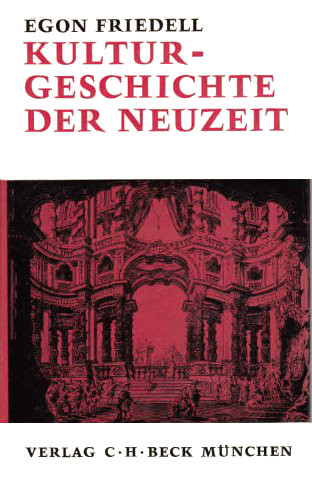J. P. Nettl: Rosa Luxemburg, Vol. 1 (1966)
Filed under book | Tags: · biography, history, marxism, politics, revolution, socialism

The first of 2 volumes of the leading biography of the Marxist theorist, philosopher, economist and revolutionary socialist. Covers the period until 1911.
Publisher Oxford University Press, 1966
450 pages
via Hyeonwoo Kim
Review (Hannah Arendt, The New York Review of Books, 1966)
Review (Robert H. McNeal, The Canadian Journal of Economics and Political Science, 1966)
PDF (17 MB, no OCR)
For a chronology of her life see the exhibition brochure produced by Rosa Luxemburg Stiftung (DE, EN, FR, TR, ES, VN).
Masha Gessen: The Man Without a Face: The Unlikely Rise of Vladimir Putin (2012)
Filed under book | Tags: · 1990s, 2000s, biography, communism, economy, history, intelligence agency, mass media, military, politics, russian, war

Handpicked in 1999 by the ‘Family’ surrounding an ailing and increasingly unpopular Boris Yeltsin, Vladimir Putin, with very little governmental or administrative experience beyond having served as deputy mayor of St Petersburg, seemed like the perfect choice in the eyes of an oligarchy bent on moulding the president’s successor to its own designs. Suddenly the boy who had scrapped his way through post-war Leningrad schoolyards, dreaming of ruling the world, was a public figure, and his popularity soared. Russia and an infatuated West were determined to see the progressive leader of their dreams, even as with ruthless efficiency Putin dismantled the country’s media, wrested control and wealth from the country’s burgeoning business class, and decimated the fragile mechanisms of democracy. Within a few brief years, virtually every obstacle to his unbridled control was removed and every opposing voice silenced, with political rivals and critics driven into exile or to the grave. As a journalist living in Moscow, Masha Gessen experienced this history firsthand, and for The Man Without a Face she has drawn on information and sources no other writer has tapped. Her horrifying and spellbinding account of how this ‘faceless’ man manoeuvred his way into absolute – and absolutely corrupt – power will stand as a classic of narrative non-fiction.
Publisher Riverhead Books, 2012
EISBN 9781101560600
Video interview with the author (52 min, Sydney Writers Festival, May 2012)
Review (Luke Harding, The Guardian, 2012)
Review (Anne Applebaum, The New York Review of Books, 2012)
Review (John Ehrman, Studies in Intelligence, 2014)
Egon Friedell: A Cultural History of the Modern Age (1927–) [DE, EN]
Filed under book | Tags: · aesthetics, art history, cultural history, history, modernity, politics, religion

Austrian essayist, cabaret performer, and amateur cultural historian Egon Friedell is best known for his brilliant, playful, and stimulating magnum opus, A Cultural History of the Modern Age (1927-31), written under the influence of Oswald Spengler and Jacob Burckhardt. He hoped for a rebirth of Western culture; the Modern Age, which was born from the Great Plague of the fourteenth century, has come to its end. At the eve of World War II, Friedell committed suicide by jumping from a window of his apartment. The German writer Thomas Mann ranked Friedell as one of the greatest stylists of the German language.
A Cultural History of the Modern Age, inspired by H.G. Well’s The Outline of History (1920), is dedicated to Max Reinhardt. Its first volume deals with Renaissance and Reformation, the second Baroque, Enlightenment and the French Revolution, and the third part Romanticism, Liberalism, Imperialism, and Impressionism. Friedell’s view is subjective and intuitive – all history is saga and myth and it is nothing more than a difference in degree between historian and poet. “All the classifications man has ever devised are arbitrary, artificial, and false,” Friedell wrote, “but simple reflection also shows that such classifications are useful, indispensable, and above all unavoidable since they accord with an innate aspect of our thinking.” Following the Hegelian lines of though, Friedell sees his subject basically as a the process of spiritual history. Oswald Spengler’s (The Decline of the West, 1918-1922) pessimism and atheism he rejects. From the English writer, historian, and critic Thomas Carlyle (1795-1881) Friedell adopted the romantic “great man” theory of history, the hero-worship, totally ignoring its ominous connection with the political reality of his day. Every era and every generation has according to Friedell its own hero, a genius, who personifies the Zeitgeist, the spirit of the age. Nietzsche was for Friedell the epitome of the pre-WW I era. (from Petri Liukkonen’s short biography of Friedell)
German edition
Publisher Beck, Munich, 1927, 1928, 1931
This edition, Zweitausendeins, Frankfurt am Main, 2009, 1335 pages
English edition
Translated by Charles Francis Atkinson
With an Introductory Essay by Alfred Polgar
Publisher Alfred A. Knopf, 1930, 1931, 1932
Fifth printing, 1953 (Vol 1); Third printing, 1954 (Vol 2); First printing, 1932 (Vol 3)
353 + 457 + 489 pages
via hz40lat46
Review (of Vol 1, Crane Brinton, Speculum, 1953)
Review (of Vols 1-2, International Journal of Ethics, 1932)
Review (of Vol 2, Eli Siegel, Scribner’s Magazine, 1931)
Review (of Vol 3, Robert Briffault, Scribner’s Magazine, 1932)
Review (of Vol 1, C. Hartley Grattan, The Forum, 1930)
Review (of Vol 1, David Owen, The Saturday Review, 1930)
Review (of Vol 2, The Saturday Review, 1932)
Review (of Vol 3, Alfred M. Frankfurter, The Bookman, 1932)
Wikipedia (DE)
Kulturgeschichte der Neuzeit; Kulturgeschichte Ägyptens (German, 1927-31/2009, at Archive.org)
A Cultural History of the Modern Age, Volume I, Volume II, Volume III (English, trans. Charles Francis Atkinson, 1930-32, no OCR)

